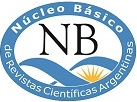Análise dos Fatores que Influenciam a Produtividade
DOI:
https://doi.org/10.33414/rtyc.43.36-51.2022Palavras-chave:
Equipes de trabalho, produtividade, fatores, gestão do conhecimentoResumo
Nos últimos anos, a taxa de geração de conhecimento aumentou seu ritmo, razão pela qual a gestão do conhecimento tornou-se uma atividade fundamental. Isto adquire maior relevância no contexto das Equipas de Trabalho onde o trabalho assenta na gestão do conhecimento, uma vez que a sua formação está relacionada com a necessidade de partilhar e colaborar para potenciar os seus resultados, adquirindo maior importância na área do desenvolvimento de software. Além disso, surgiram fatores que influenciam a forma de trabalhar e afetam a produtividade das equipes. Este artigo apresenta o estado da arte como um processo de revisão sistemática da literatura que considera os fatores que influenciam o modo de trabalho das equipes, analisando o impacto em sua produtividade. Os resultados obtidos indicam que os fatores de maior impacto na produtividade da equipe são aqueles relacionados à interação entre seus membros, principalmente comunicação, distância e organização
Downloads
Referências
Alahyari, H., Horkoff, J., Matsson, O., & Egenvall, K. (2018). What Do Agile Teams Find Important for Their Success? Proceedings - Asia-Pacific Software Engineering Conference, APSEC, 2018-December, 474–483. https://doi.org/10.1109/APSEC.2018.00062
Alberti, A., Bageneta, M., Bardomás, S., & Blanco, M. (2020). El trabajo en tiempos del COVID-19 | CONICET. https://bit.ly/3rmUyez
Anwar, R., Rehman, M., Wang, K. S., & Salleh, R. (2018). Job Performance Through Knowledge Sharing Behavior in Global Software Development Organizations. Proceedings - 2018 4th International Conference on Information Retrieval and Knowledge Management: Diving into Data Sciences, CAMP 2018, 192–197. https://doi.org/10.1109/INFRKM.2018.8464822
Appelo, J. (2013). MANAGEMENT 3.0: Leading Agile Developers, Developing Agile Leaders. Journal of Chemical Information and Modeling, 53(9), 1689–1699.
Bass, J. M., Beecham, S., Razzak, M. A., & Noll, J. (2018). Employee retention and turnover in global software development: Comparing in-house offshoring and offshore outsourcing. Proceedings - International Conference on Software Engineering, 82–91. https://doi.org/10.1145/3196369.3196375
Batista, A. C. D., de Souza, R. M. C. R., da Silva, F. Q. B., Melo, L. D. A., & Marsicano, G. (2020, October 5). Teamwork quality and team success in software development: A non-exact replication study. International Symposium on Empirical Software Engineering and Measurement. https://doi.org/10.1145/3382494.3410632
Beck, K. (2001). Manifesto for Agile Software Development. The Agile Manifesto. https://bit.ly/3Gmq28N
Beck, K., & Andres, C. (2004). Extreme Programming Explained: Embrace Change, Second Edition. Addison-Wesley Professional.
Besker, T., Ghanbari, H., Martini, A., & Bosch, J. (2020). The influence of Technical Debt on software developer morale. Journal of Systems and Software, 167. https://doi.org/10.1016/j.jss.2020.110586
Bezerra, C. I. M., de Souza Filho, J. C., Coutinho, E. F., Gama, A., Ferreira, A. L., de Andrade, G. L., & Feitosa, C. E. (2020). How Human and Organizational Factors Influence Software Teams Productivity in COVID-19 Pandemic: A Brazilian Survey. PervasiveHealth: Pervasive Computing Technologies for Healthcare, 606–615. https://doi.org/10.1145/3422392.3422417
Biolchini, J., Mian, P., Conte, T., Natali, A., & Travassos, G. (2007). A Systematic Review Process for Software Engineering. Empirical Software Engineering, 32(3), 1–6. https://doi.org/10.1145/1241572.1241584
Bradner, E., & Mark, G. (2002). Why Distance Matters: Effects on Cooperation, Persuasion and Deception. 226–235. https://doi.org/https://doi.org/10.1145/587078.587110
Chow, T., & Cao, D. B. (2008). A survey study of critical success factors in agile software projects. Journal of Systems and Software, 81(6), 961–971. https://doi.org/10.1016/j.jss.2007.08.020
Cockburn, A. (2012). Characterizing People as Non-Linear, First-Order Components in Software Development. 4th International Multi-ConferenceonSystems, Cybernetics and Informatics.
Conlin, S. (1986). Social factors. Project Appraisal, 215–217. https://doi.org/10.1080/02688867.1986.9726569
Davis, A. M. (1995). 201 Principles of Software Development. McGraw-Hill Companies.
de Melo, C. O., S. Cruzes, D., Kon, F., & Conradi, R. (2013). Interpretative case studies on agile team productivity and management. Information and Software Technology, 55(2), 412–427. https://doi.org/10.1016/j.infsof.2012.09.004
Deak, A., Stålhane, T., & Sindre, G. (2016). Challenges and strategies for motivating software testing personnel. Information and Software Technology, 73, 1–15. https://doi.org/10.1016/j.infsof.2016.01.002
Dingsoyr, T., Faegri, T. E., Dyba, T., Haugset, B., & Lindsjorn, Y. (2016). Team performance in software development: Research results versus agile principles. IEEE Software, 33(4), 106–110. https://doi.org/10.1109/MS.2016.100
Dorairaj, S., Noble, J., & Malik, P. (2012). Understanding Lack of Trust in Distributed Agile Teams: A Grounded Theory Study. [IEEE].
Duarte, C. H. (2019). The quest for productivity in software engineering: A practitioners systematic literature review. Proceedings - 2019 IEEE/ACM International Conference on Software and System Processes, ICSSP 2019, 145–154. https://doi.org/10.1109/ICSSP.2019.00027
Ehrlich, K., & Cataldo, M. (2014). The Communication Patterns of Technical Leaders: Impact on Product Development Team Performance.
Fagerholm, F., Ikonen, M., Kettunen, P., Münch, J., Roto, V., & Abrahamsson, P. (2014). How do software developers experience team performance in Lean and Agile environments? ACM International Conference Proceeding Series. https://doi.org/10.1145/2601248.2601285
Fagerholm, F., Ikonen, M., Kettunen, P., Münch, J., Roto, V., & Abrahamsson, P. (2015). Performance Alignment Work: How software developers experience the continuous adaptation of team performance in Lean and Agile environments. Information and Software Technology, 64, 132–147. https://doi.org/10.1016/j.infsof.2015.01.010
Fagerholm, F., & Pagels, M. (2014). Examining the structure of lean and agile values among software developers. Lecture Notes in Business Information Processing, 179 LNBIP, 218–233. https://doi.org/10.1007/978-3-319-06862-6_15
Fatema, I., & Sakib, K. (2018). Factors Influencing Productivity of Agile Software Development Teamwork: A Qualitative System Dynamics Approach. Proceedings - Asia-Pacific Software Engineering Conference, APSEC, 2017-December, 737–742. https://doi.org/10.1109/APSEC.2017.95
Fernández, G., Borjas, C., & Emilia, A. (2008). Los equipos de trabajo: una práctica basada en la gestión del conocimiento. Revista Visión Gerencial, 0(1), 45–58.
Fernández, H. (2019). La economía del conocimiento y su importancia en la competitividad de un país. https://bit.ly/3HGQc7X
França, A. C. C., Carneiro, D. E. S., & da Silva, F. Q. B. (2012). Towards an explanatory theory of motivation in software engineering: A qualitative case study of a small software company. Proceedings - 2012 Brazilian Symposium on Software Engineering, SBES 2012, 61–70. https://doi.org/10.1109/SBES.2012.28
Garzás Parra, J. (2018). Peopleware y Equipos Ágiles (233 Grados de TI, Ed.).
Ghayyur, S. A. K., Ahmed, S., Ali, M., Razzaq, A., Ahmed, N., & Naseem, A. (2018). A systematic literature review of success factors and barriers of Agile software development. International Journal of Advanced Computer Science and Applications, 9(3), 278–291. https://doi.org/10.14569/IJACSA.2018.090339
Gren, L. (2017). The links between agile practices, interpersonal conflict, and perceived productivity. ACM International Conference Proceeding Series, Part F128635, 292–297. https://doi.org/10.1145/3084226.3084269
Hellman, C., Fuqua, D., & Worley, J. (2006). A Reliability Generalization Study on the Survey of Perceived Organizational SupportThe Effects of Mean Age and Number of Items on Score Reliability. Educational and Psychological Measurement - EDUC PSYCHOL MEAS, 66, 631–642. https://doi.org/10.1177/0013164406288158
Hofstede, G. (2011). Dimensionalizing Cultures: The Hofstede Model in Context. 2, 1–26.
Iqbal. J., Omar M., & Yasin A. (2019). An Empirical Analysis of the Effect of Agile Teams on Software Productivity.
Kitchenham, B., & Charters, S. (2007). Guidelines for performing Systematic Literature Reviews in SE. 1–44. https://doi.org/10.1145/1134285.1134500
Kortum, F., Klunder, J., & Schneider, K. (2019). Behavior-driven dynamics in agile development: The effect of fast feedback on teams. Proceedings - 2019 IEEE/ACM International Conference on Software and System Processes, ICSSP 2019, 34–43. https://doi.org/10.1109/ICSSP.2019.00015
Kotlarsky, J., & Oshri, I. (2005). Social ties, knowledge sharing and successful collaboration in globally distributed system development projects. European Journal of Information Systems, 14(1), 37–48. https://doi.org/10.1057/palgrave.ejis.3000520
Lindsjørn, Y., Sjøberg, D. I. K., Dingsøyr, T., Bergersen, G. R., & Dybå, T. (2016). Teamwork quality and project success in software development: A survey of agile development teams. Journal of Systems and Software, 122, 274–286. https://doi.org/10.1016/j.jss.2016.09.028
Makanjee, C. R., Hartzer, Y. F., & Uys, I. L. (2006). The effect of perceived organizational support on organizational commitment of diagnostic imaging radiographers. Radiography, 12(2), 118–126. https://doi.org/https://doi.org/10.1016/j.radi.2005.04.005
Manns, M. L., & Rising, L. (2004). Fearless Change: Patterns for Introducing New Ideas (Addison Wesley, Ed.; 1st ed.).
Melle, M. (2018, November 20). Los retos del empleo en la economía 4.0. Cadena SER. https://bit.ly/3gnA5jy
Melo, C., Cruzes, D. S., Kon, F., & Conradi, R. (2011). Agile team perceptions of productivity factors. Proceedings - 2011 Agile Conference, Agile 2011, 57–66. https://doi.org/10.1109/AGILE.2011.35
Mendes, E., Viana, D., Vishnubhotla, S. D., & Lundberg, L. (2018). Realising individual and team capability in agile software development: A qualitative investigation. Proceedings - 44th Euromicro Conference on Software Engineering and Advanced Applications, SEAA 2018, 183–190. https://doi.org/10.1109/SEAA.2018.00037
Molinari, P. (2015). Tu trabajo ideal. http://www.pmolinari.com/videos/
Molinero Parra, J. M. (2018). UF2218 - Desarrollo de un CMS. https://bit.ly/3uoWDZa
Narayan, Ramasubbu., Cataldo, Marcelo., Krishna Balan, Rajesh., & Herbsle, J. D. (2011). Configuring Global Software Teams: A Multi-Company Analysis of Project Productivity, Quality, and Profits. Association for Computing Machinery.
Oliveira, E., Conte, T., Cristo, M., & Mendes, E. (2016). Software Project Managers’ Perceptions of Productivity Factors: Findings from a Qualitative Study. International Symposium on Empirical Software Engineering and Measurement, 08-09-September-2016. https://doi.org/10.1145/2961111.2962626
Przybilla, L., Wiesche, M., & Krcmar, H. (2018). The influence of agile practices on performance in software engineering teams: A subgroup perspective. SIGMIS-CPR 2018 - Proceedings of the 2018 ACM SIGMIS Conference on Computers and People Research, 33–40. https://doi.org/10.1145/3209626.3209703
Qahtani, A. M. (2020). An Empirical Study of Agile Testing in A Distributed Software Development Project. PervasiveHealth: Pervasive Computing Technologies for Healthcare, 110–114. https://doi.org/10.1145/3397056.3397085
Rutz, L., & Tanner, M. (2016). Factors that influence performance in Global Virtual Teams in outsourced software development projects. 2016 IEEE International Conference on Emerging Technologies and Innovative Business Practices for the Transformation of Societies, EmergiTech 2016, 329–335. https://doi.org/10.1109/EmergiTech.2016.7737361
Santos, R. E. S., da Silva, F. Q. B., de Magalhães, C. V. C., & Monteiro, C. V. F. (2016). Building a theory of job rotation in software engineering from an instrumental case study. Proceedings - International Conference on Software Engineering, 14-22-May-2016, 971–981. https://doi.org/10.1145/2884781.2884837
Shafiq, S., Inayat, I., & Abbas, M. (2019). Communication Patterns of Kanban Teams and Their Impact on Iteration Performance and Quality. Proceedings - 45th Euromicro Conference on Software Engineering and Advanced Applications, SEAA 2019, 164–168. https://doi.org/10.1109/SEAA.2019.00033
Shao, B. B. M., Yin, P. Y., & Chen, A. N. K. (2014). Organizing knowledge workforce for specified iterative software development tasks. Decision Support Systems, 59(1), 15–27. https://doi.org/10.1016/j.dss.2013.10.002
Sutherland, J. (2014). Scrum: The Art of Doing Twice the Work in Half the Time. Crown Business.
Tangen, S. (2005). Demystifying productivity and performance. International Journal of Productivity and Performance Management, 54(1), 34–46. https://doi.org/10.1108/17410400510571437
Vasilescu, B., Posnett, D., Ray, B., van den Brand, M. G. J., Serebrenik, A., Devanbu, P., & Filkov, V. (2015). Gender and tenure diversity in github teams. Conference on Human Factors in Computing Systems - Proceedings, 2015-April, 3789–3798. https://doi.org/10.1145/2702123.2702549
Vishnubhotla, S. D., Mendes, E., & Lundberg, L. (2018). An insight into the capabilities of professionals and teams in agile software development: A systematic literature review. ACM International Conference Proceeding Series, 10–19. https://doi.org/10.1145/3185089.3185096
Wagstrom, P., & Datta, S. (2014). Does latitude hurt while longitude kills? geographical and temporal separation in a large scale software development project. Proceedings - International Conference on Software Engineering, 1, 199–210. https://doi.org/10.1145/2568225.2568279
Wood, S., Michaelides, G., & Thomson, C. (2013). Successful extreme programming: Fidelity to the methodology or good teamworking? Information and Software Technology, 55(4), 660–672. https://doi.org/10.1016/j.infsof.2012.10.002
Yilmaz, M., & O’Connor, R. (2012). Social capital as a determinant factor of software development productivity: An empirical study using structural equation modeling. International Journal of Human Capital and Information Technology Professionals, 3(2), 40–62. https://doi.org/10.4018/jhcitp.2012040104
Publicado
Como Citar
Edição
Seção
Licença
Copyright (c) 2022 Verónica Andrea Bollati, Germán Gaona, Paula B. Lima

Este trabalho está licenciado sob uma licença Creative Commons Attribution-NonCommercial 4.0 International License.



















